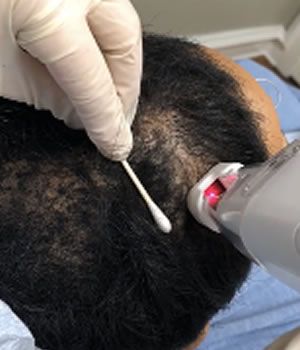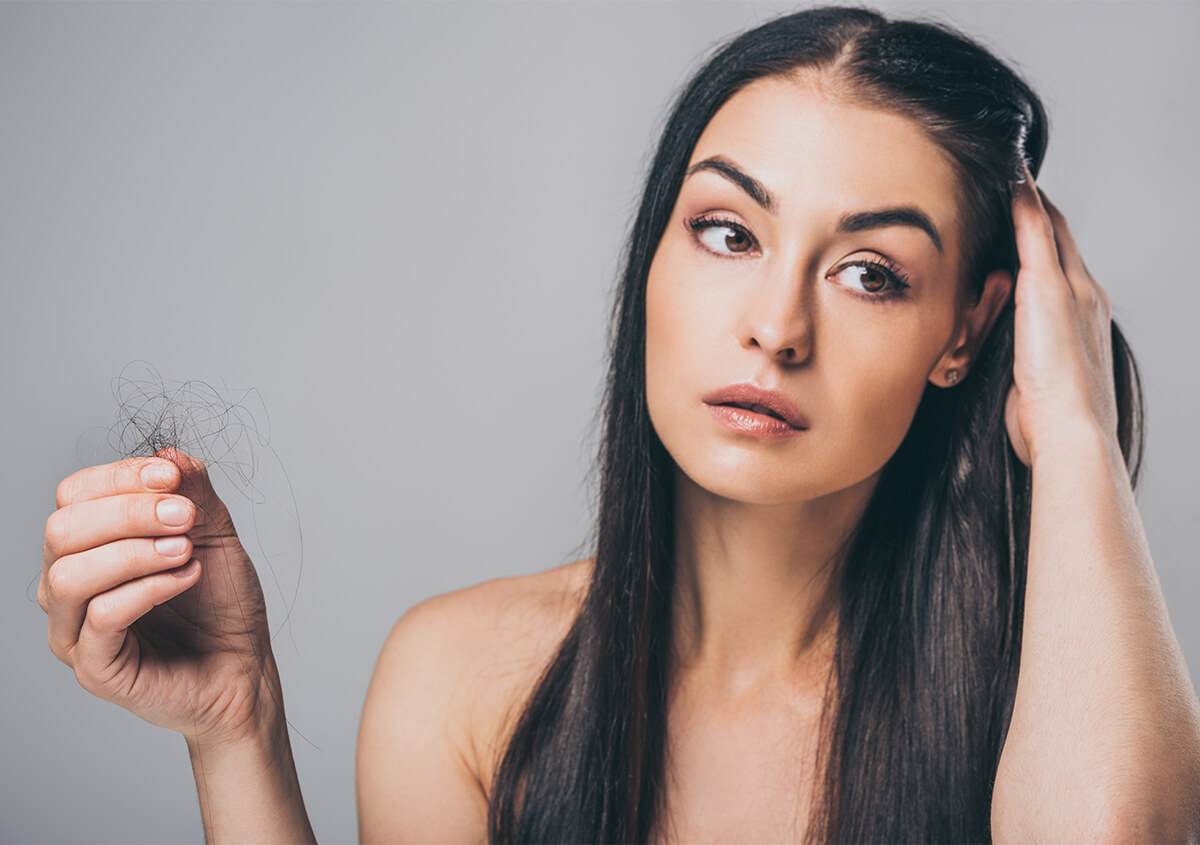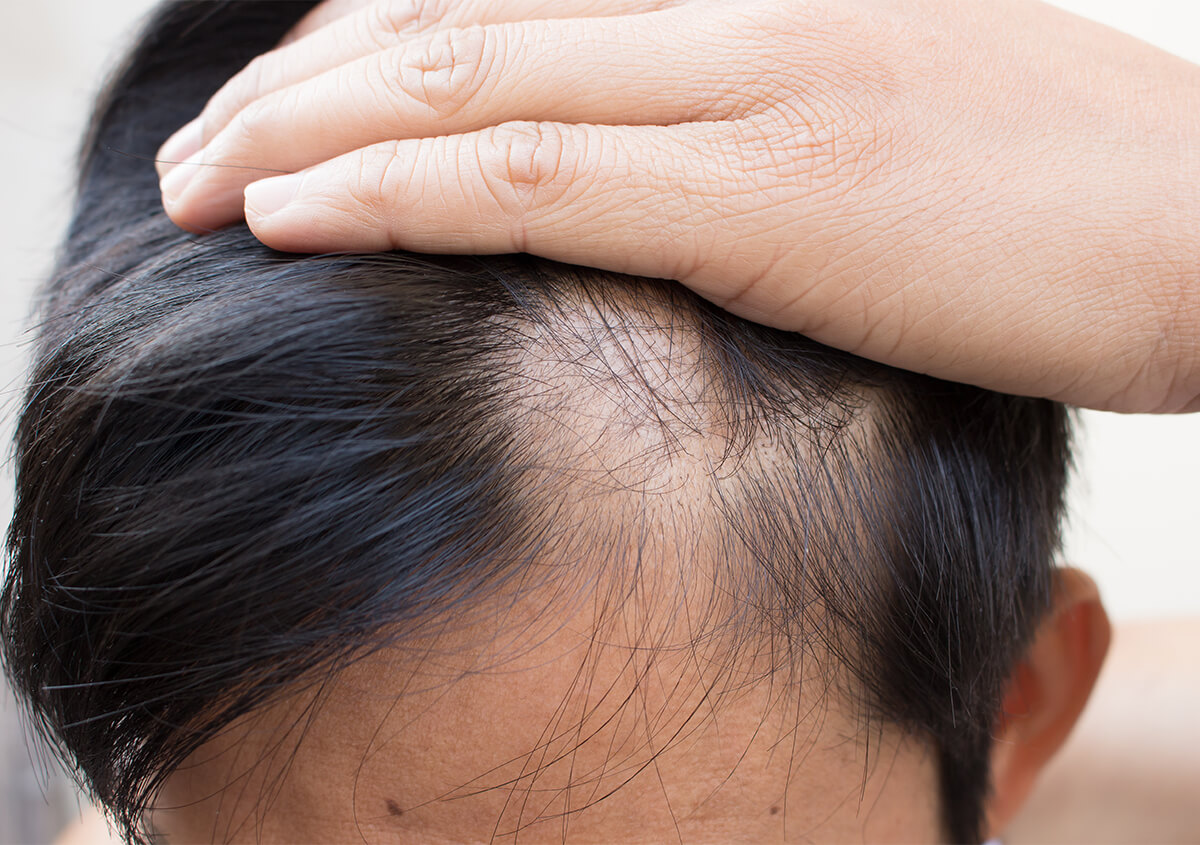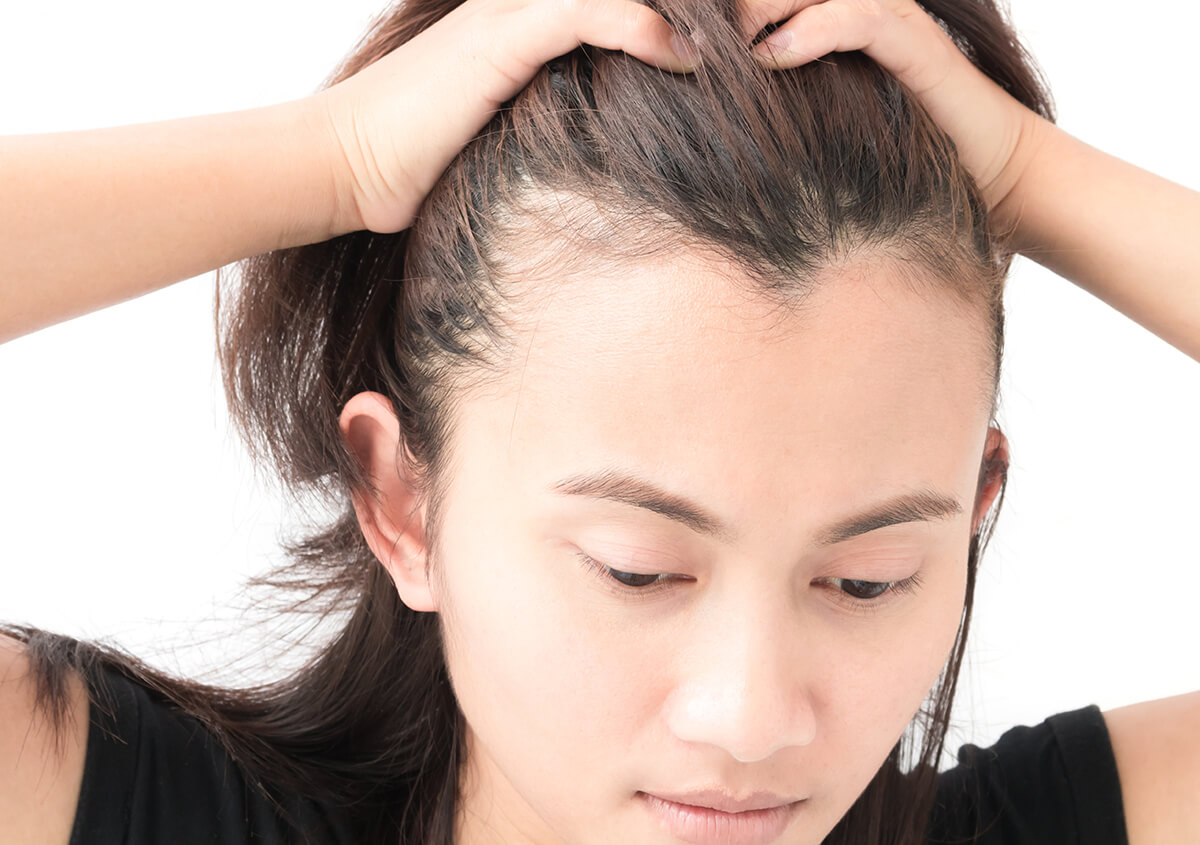HAIR RESTORATION THERAPY

Hair loss is incredibly common, affecting up to 20 percent of Americans. Regardless of how common it is, Dr. Jeanine Downie at image Dermatology ® P.C. understands how big of a toll thinning hair can take on your confidence at work, in social situations, and even as you are passing strangers on the street. If you are tired of trying to cover up thinning hair, options such as laser hair restoration in Montclair, NJ can help you manage your hair loss, giving you thicker, stronger hair and the appearance of more volume and body.
WHY HAIR LOSS OCCURS
Hair loss can have several different causes, ranging from simple lifestyle habits to disease or genetics. The most common form of hair loss is called androgenetic alopecia, otherwise known as pattern hair loss or pattern baldness. In men, this form of hair loss can begin as early as puberty and it often progresses over time, starting with hair loss near the temples and then continuing around the top and perimeter of the head. Women can also experience pattern hair loss, but it is usually an overall thinning and does not result in a receding hairline or baldness. Androgenetic alopecia is a hereditary form of hair loss, which means that it cannot be completely “cured,” but the great news is that therapies like KeraLase™, a combination of laser treatment and a powerful hair growth serum, can help you manage the condition.
Other causes of hair loss may include:
- Hormonal changes, such as those that you experience during pregnancy and menopause
- Thyroid issues, such as hypothyroidism
- Medical conditions
- Scalp infections
- Certain medications or supplements
- Highly stressful periods in your life
- A large amount of weight loss
- Regularly pulling on your hair too tightly, such as in ponytails, cornrows, or tight headbands
WHAT IS LASER HAIR REJUVENATION?
Laser hair rejuvenation is a method of restoring your hair’s strength, thickness, and fullness. It works by passing a laser device that is specifically designed to stimulate your hair follicles by opening the channels and stimulating circulation in the follicles, which results in hair growth and diminishes a receding hairline. Laser hair restoration is:
- Safe
- Clinically proven – in one study, laser hair treatment resulted in a 39% boost in hair growth over 16 weeks
- Comfortable and pain-free
- Non-invasive
- Free from side effects
Actual Patient Results
GOOD CANDIDATES FOR LASER HAIR THERAPY
Laser hair therapy can be used on both men and women and can be used on all skin types and hair lengths. Laser treatment can be helpful for rejuvenating hair due to pattern hair loss and some other types of hair loss, but is not recommended for scarring alopecia and certain other types of hair loss, so it is important to seek a diagnosis from an experienced dermatologist such as Dr. Downie to determine the type of hair loss you have prior to choosing laser treatment.
It is also important to have realistic expectations from the treatment, both in terms of the commitment and results. It typically takes multiple sessions spaced out over the course of three months (treatments every two weeks), with three maintenance sessions per year thereafter. Patients who are taking certain medications should also avoid laser hair therapy, because they can cause photosensitivity that can result in being more sensitive than usual to lights such as lasers. Dr. Downie evaluates each patient on an individual basis to determine whether laser hair restoration is the best choice, or if other therapies or a combination of treatments would be the best choice.
LEARN MORE IN A CONSULTATION
If you are ready to feel great about your hair again and get the confidence boost that comes along with it, call image Dermatology ® P.C. today or visit us online to schedule your consultation. Our Montclair, NJ office can be reached at (973) 509-6900.
RELATED VIDEOS
Watch How LaseMD Ultra Treatment Process for Hair Loss Montclair

Hair Restoration Therapy Video

These are two hair videos showing how the laser prepares the scalp so that we can rub on the growth factor serum and regenerate the hair follicles. This works for androgenetic alopecia and does not work for scarring alopecia.
LASEMD ULTRA TREATMENT BETTER THAN PRP FOR HAIR LOSS MONTCLAIR

Painless & Effective LaseMD Ultra Treatment for Hair Loss Montclair

































